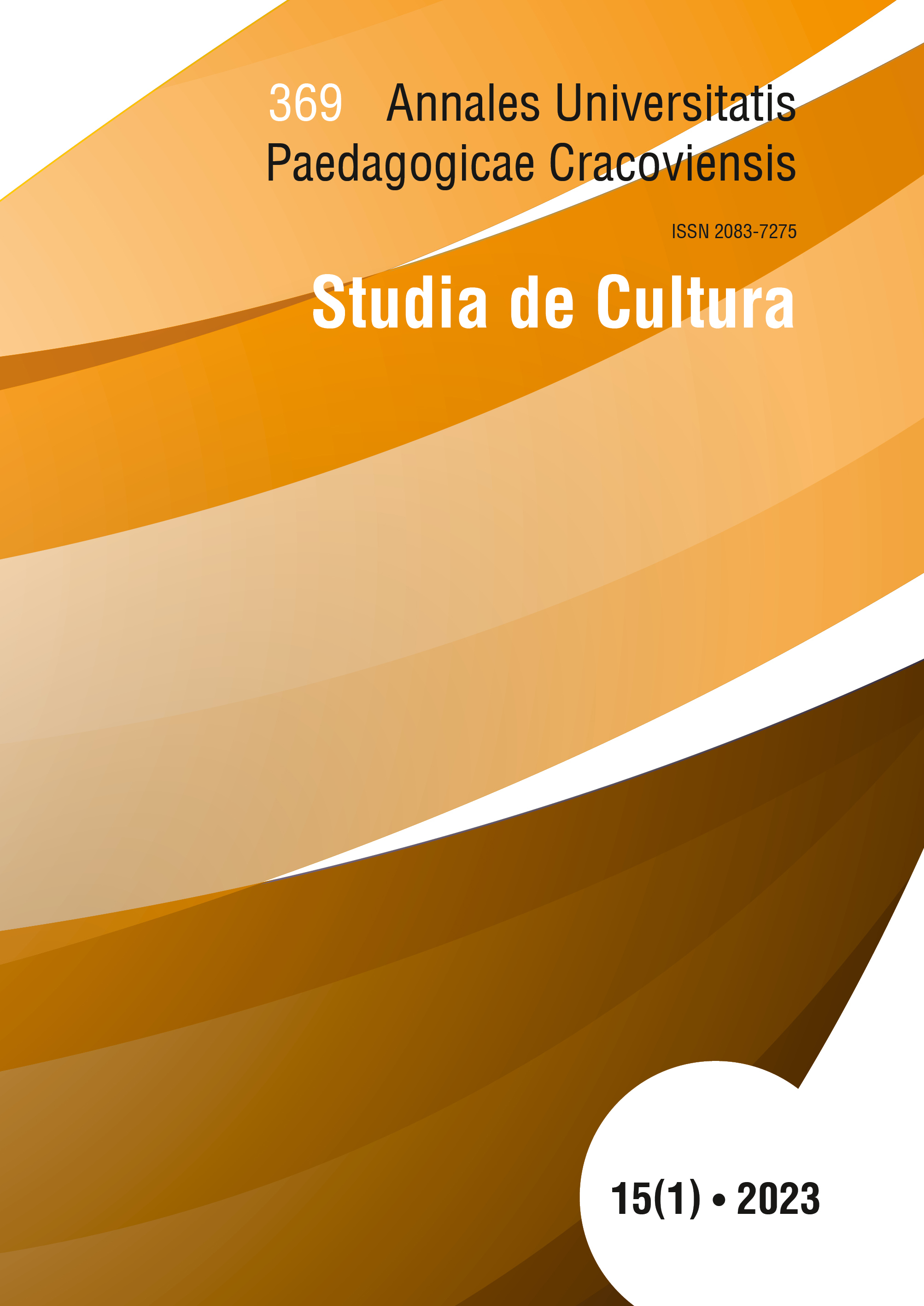Abstract
Nowadays, TV series are an integral part of media and popular culture. Many of them focus on various forms of violence against women and tell of protection against external oppression. This article focuses on selected modern TV series with female characters in lead roles; it aims to discuss ways of portraying women in TV series produced in the 2010s. The analysis confirms the thesis that TV series reflect the hidden, concealed problems of women, dealing with issues of sexual, domestic, and psychological violence, and religious oppression. The protagonists of these series struggle with and rebel against behavioral norms set by their patriarchal society, family, or religious community. The paper discusses sociocultural changes in showing women characters in TV series, issues of multicultural and religious identity, and the limits of cultural assimilation and integration.
References
Feldman Deborah. 2020. Unorthodox. Jak porzuciłam świat ortodoksyjnych Żydów. Kamila Slawinski (przeł.). Warszawa.
View in Google Scholar
Jenner Mareike. 2015. „Binge‑watching: Video‑on‑demand, quality TV and mainstreaming fandom”. International Journal of Cultural Studies 20(3). 304–320. https://arro.anglia.ac.uk/578784/1/Binge‑Watching%20Video‑on-Demand%2C%20Quality%20TV%20and%20Mainstreaming%20Fandom.pdf (dostęp: 25.02.2022).
View in Google Scholar
Kisielewska Alicja. 2021. Antropologia telewizji. Telewizja w życiu codziennym w Polsce. Białystok.
View in Google Scholar
Kisielewska Alicja. 2009. Polskie tele‑sagi – mitologie rodzinności. Kraków.
View in Google Scholar
Kisielewska Alicja. 2016. „Seriale telewizyjne jako wspólnoty symboliczne”. IDEA – Studia nad strukturą i rozwojem pojęć filozoficznych XXVIII(2). 91–106.
View in Google Scholar
Konieczna Ewelina. 2021. „Seriale i ich odbiór jako odbicie zmian społeczno‑kulturowych”. Dyskursy Młodych Andragogów 22. 85–97.
View in Google Scholar
Land Stephanie. 2019. Sprzątaczka. Jak przeżyć w Ameryce, będąc samotną matką pracującą za grosze. Barbara Gadomska (przeł.). Wołowiec.
View in Google Scholar
Lehrer Eli. 2014. „The Netflix effect”. Weekly Standard 19(24) (3 March). https://www.washingtonexaminer.com/weekly‑standard/the‑netflix‑effect (dostęp: 25.02.2022).
View in Google Scholar
Lisowska‑Magdziarz Małgorzata. 2016. „Od redaktora: seriale – nowa jakość czy stare w nowej odsłonie?”. Zeszyty Prasoznawcze 59(1). 1–15. https://www.ejournals.eu/Zeszyty‑Prasoznawcze/ (dostęp: 25.11.2022).
View in Google Scholar
Miller Christian T., Armstrong Ken. 2018. A False Report: A True Story of Rape in America. New York.
View in Google Scholar
Pittman Matthew, Sheehan Kim. 2015. Sprinting a media marathon: Uses and gratifications of binge‑watching television through Netflix. https://firstmonday.org/article/view/6138/4999 (dostęp: 24.11.2022).
View in Google Scholar
Roxborough Scott. 2014. „Despite Netflix effect, foreign networks prefer to wait for series”. Hollywood Reporter (20 February). https://www.hollywoodreporter.com/news/netflix‑effect‑foreign‑networks‑prefer-681928 (dostęp: 25.11.2022).
View in Google Scholar
Smith Chris. 2014. „The Netflix effect: How binge watching is changing television”. TechRadar (16 January). http://www.techradar.com/us/news/internet/the‑netflix‑effect‑how‑binge‑watching‑is‑changing‑television-1215808 (dostęp: 28.09.2015).
View in Google Scholar
Ślęczka Kazimierz. 1999. Feminizm. Ideologie i koncepcje społeczne współczesnego feminizmu. Katowice.
View in Google Scholar
Tokarczuk Olga. 2020. Czuły narrator. Kraków.
View in Google Scholar
Wolf Naomi. 1993. Fire with fire. The new female power and how it will change the 21th century. London.
View in Google Scholar
Homeland. 2011–2020. 8 sezonów, 96 odcinków. Twórcy: Gideon Raff, Howard Gordon, Alex Gansa. Prod. Chip Johannessen, USA. Emisja: Showtime, Netflix.
View in Google Scholar
Kalifat. 2020. 8 odcinków. Twórcy: Wilhelm Behrman, Niklas Rockström, Goran Kapetanović. Prod. Tomas Michaelsson. Szwecja. Emisja: SVT1, Netflix.
View in Google Scholar
Niewiarygodne (Unbelievable). 2019. 8 odcinków. Twórcy: Susannah Grant, Ayelet Waldman, Michael Chabon Prod. Katie Couric Media, Escapist Fare, Timberman/Beverly Productions, Sage Lane Productions, CBS Television Studios. USA. Emisja: Netflx.
View in Google Scholar
Sprzątaczka (Maid). 2021. 10 odcinków. Twórca: Molly Smith Metzler. Prod. Colin McKenna,Terri Murphy, Bonnie R. Benwick. USA. Emisja: Netflix.
View in Google Scholar
Unorthodox. 2020. 4 odcinki. Twórca: Maria Schrader. Prod. Studio Airlift, Real Film Berlin GmbH, Niemcy. Emisja: Netflix.
View in Google Scholar
Upadek (The Fall). 2013–2016. 3 sezony (17 odcinków). Twórca: Allan Cubitt, Jakob Verbruggen. Prod.Fables Limited Artists Studio, BBC Northern Ireland, RTÉ, Wielka Brytania, Irlandia. Emisja: BBC 2, RTÉ One, Netflix.
View in Google Scholar

This work is licensed under a Creative Commons Attribution-NonCommercial 4.0 International License.
Copyright (c) 2023 Annales Universitatis Paedagogicae Cracoviensis. Studia de Cultura

